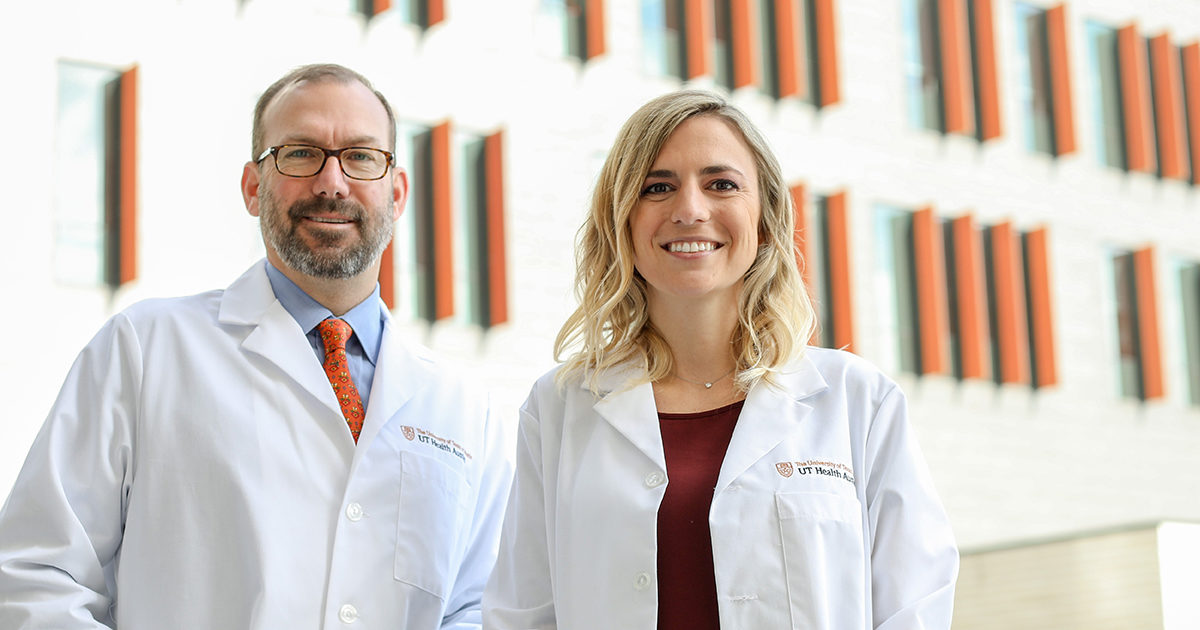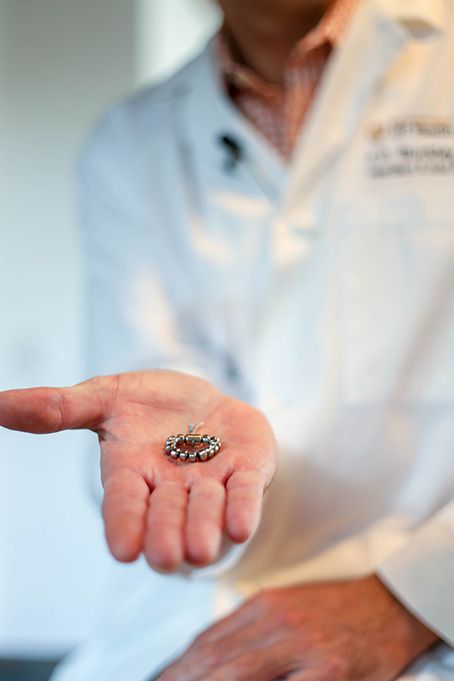Got GERD?
Dr. Tripp Buckley shares how his experience with GERD guides the way he treats patients in similar situations

Heartburn is common. For many people, the symptoms are mild or intermittent; however, millions suffer from severe or daily heartburn and regurgitation. This is known as gastroesophageal reflux disease (GERD) and it affects up to 20% of the U.S. population. GERD is defined as esophageal damage and/or reflux affecting daily activities. Of those who suffer from GERD, many are unable to obtain complete relief from commonly prescribed or over-the-counter medications. Over time, chronic reflux can cause damage to the esophagus that can lead to trouble swallowing or even pre-cancerous conditions, such as Barrett’s esophagus.
F. P. “Tripp” Buckley III, MD, a board-certified general surgeon in the Texas Center for Esophageal and Foregut Surgery within UT Health Austin’s General and Gastrointestinal Surgery Clinic. He specializes in specializes in anti-reflux and esophageal surgery. “Specifically, we focus on gastroesophageal reflux disease, or GERD, as well as other esophageal disorders, such as achalasia, a complex swallowing disorder,” says Dr. Buckley.
Drawing From Personal Experience
Dr. Buckley himself, suffered from GERD and Barrett’s esophagus, which significantly impacted his quality of life. “In 2012, I began having symptoms of heartburn and severe regurgitation that was so severe I was unable to sleep at night, which are the same type of issues many of my patients experience,” says Dr. Buckley. “I underwent all of the diagnostic tests that we typically perform, and I eventually had surgery in 2013.”
After Dr. Buckley’s personal experience in his battle against GERD and Barrett’s esophagus, he decided to focus exclusively on helping others with heartburn and esophageal disorders. “I have great empathy for the suffering that our patients have experienced,” explains Dr. Buckley. “I know how scary surgery can be, but since I’ve undergone it myself, I feel that I am able to better guide my patients through the process. The entire team here at UT Health Austin has the kind of experience that really can help make the entire process smoother from start to finish.”

Like every UT Health Austin clinician, Dr. Buckley believes that caring for each patient as a whole person is the best approach to treating the types of conditions he sees. “We do a multitude of standard stomach and esophagus procedures as well as the entire spectrum of hiatal hernia repairs. We also do a number of newer procedures to treat GERD, one of them being the LINX procedure, which uses a specialized implant that helps prevent gastric acid from pushing back up into the esophagus and allows for easier swallowing,” says Dr. Buckley. “But it’s important that we look at the patient as a whole person to determine exactly which type of treatment approach or operation is right for them.”
Dr. Buckley has been practicing medicine in Texas for over ten years, and he was thrilled to be invited to join the UT Health Austin clinical practice and Dell Medical School faculty. “My entire team couldn’t be more excited to be a part of this new medical center where we are able to leverage the power of the medical school to enable us to take the best care of our patients while remaining at the forefront of medical research,” shares Dr. Buckley. “My team and I are committed to applying our full energy to address GERD as a condition and a disorder so that we can improve out patients’ lives and hopefully disrupt the progression of GERD from turning into esophageal cancer.”
Dr. Buckley explains that he is also very excited to have the opportunity to train the next generation of surgeons who will be one day take care of patients like him. He is also working with his team to develop a Dell Medical School fellowship program around foregut surgery.
For more information about the Texas Center for Esophageal and Foregut Surgery or to request an appointment, call 1-512-495-GERD (1-512-495-4373) or visit here.